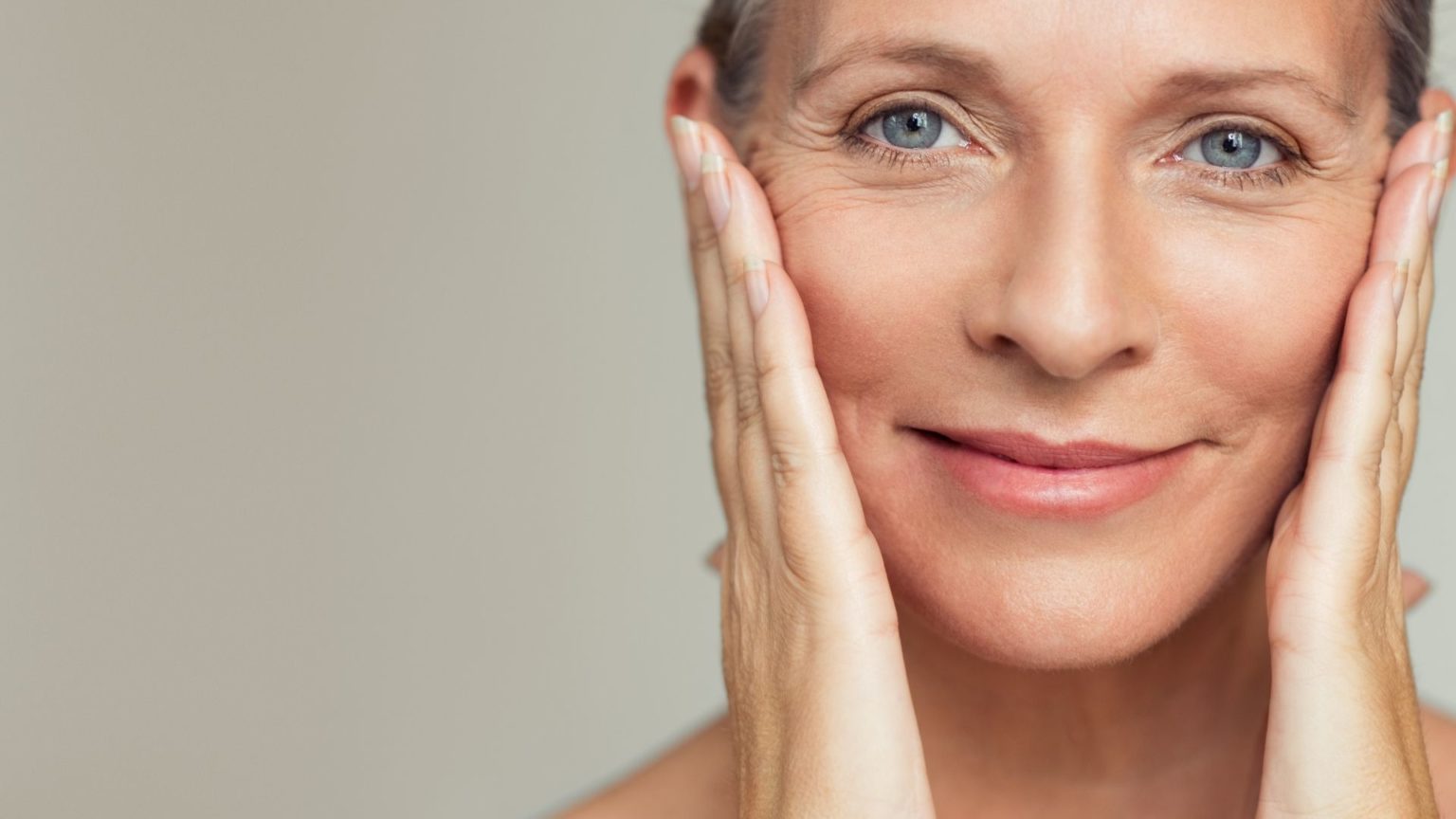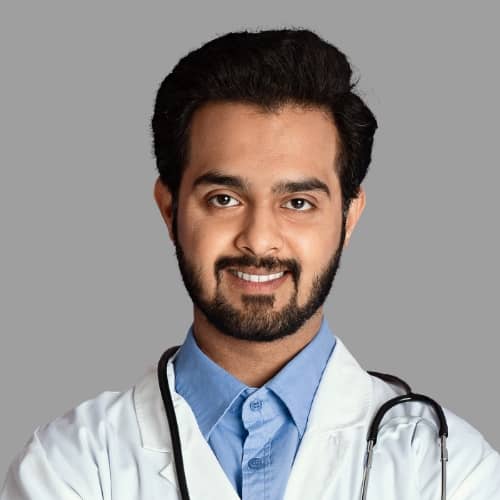✓ Fact Checked 🕓
❙ Our team of writers, editors, and medical experts rigorously evaluates each article to ensure the information is accurate and exclusively cites reputable sources.
❙ We regularly assess how the content in this article aligns with current scientific literature and expert recommendations in order to provide the most up-to-date research.
Aging and Dental Health
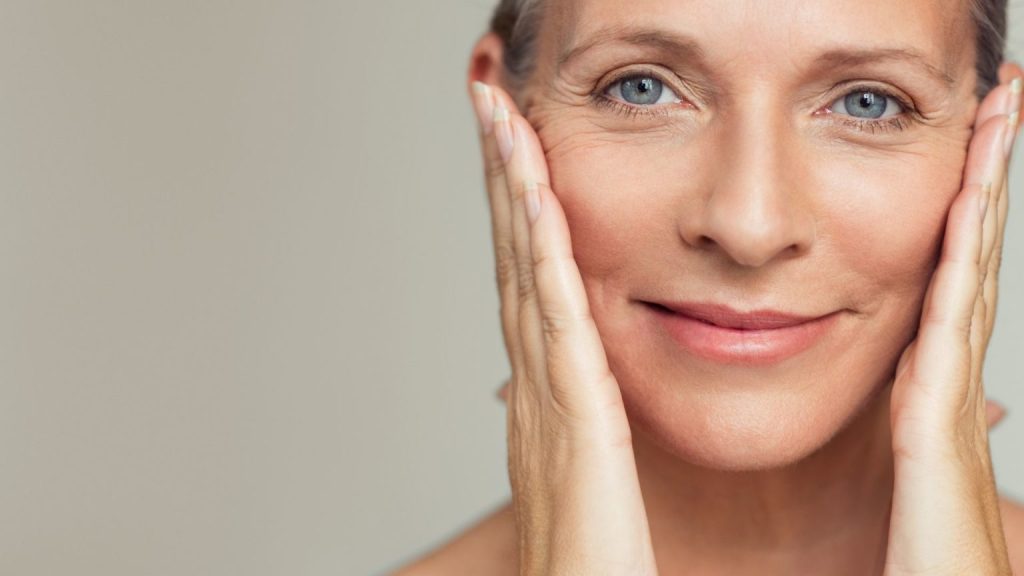

Today, older Americans are keeping their natural teeth longer, but they face challenges to their dental health. They require more complex dental treatments and have difficulty maintaining good oral hygiene due to geriatric health conditions and physiological changes, typical of aging.
The increase in the elderly population (65 years and older) means that this demographic will represent a significant segment in the field of dentistry in the coming years. These patients often have underlying health conditions complicated by coexisting diseases, such as hypertension or diabetes, along with the physiological changes of aging. The regular use of multiple medications increases the risk of medication errors, drug interactions, and side effects. Additionally, physical, sensory, and cognitive limitations can render it difficult to provide dental care at home and communicate properly with patients.
Nearly 19% of older adults are edentulous, with a higher incidence in people 75 years or older, showing variations by race/ethnicity. Tooth loss affects nutrition as it limits the consumption of fresh fruits and vegetables, leading to a poor diet and health problems. Additionally, dentures can cause pain, slurred speech, embarrassment, and social isolation.
As noted, the elderly population is increasing, representing a significant segment of modern dentistry. Problems such as dry mouth, cavities, and periodontitis are common at this age. A significant percentage of older adults have untreated cavities and periodontal disease, which is associated with chronic diseases such as diabetes and heart disease. Tooth loss affects nutrition and quality of life, causing difficulties in eating, speaking, and social well-being.
Why does Aging Affect Dental Health?
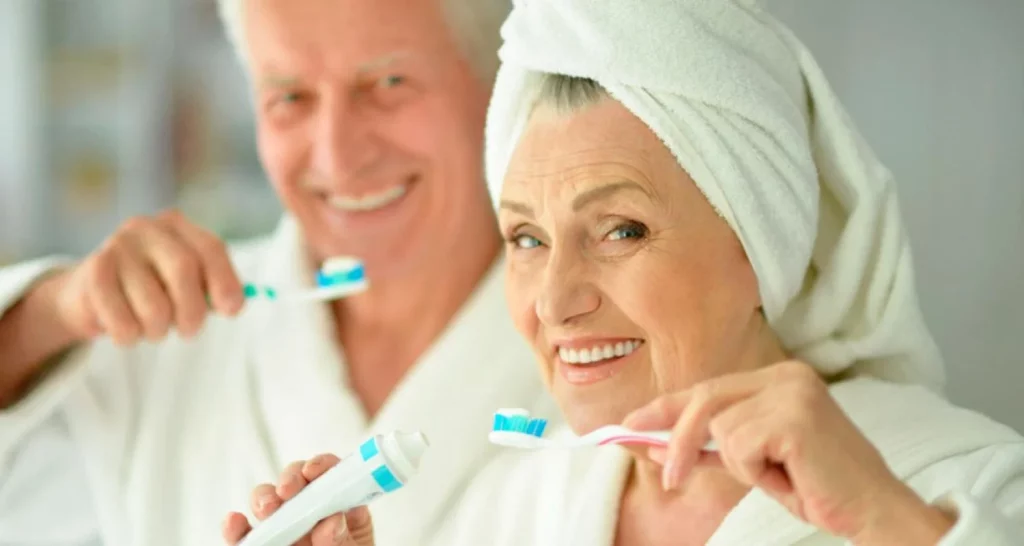

As we age, our body undergoes changes that affect our health, including dental health. These changes are the result of several factors:
● Cells regenerate more slowly over time, affecting the body’s ability to repair tissues.
● Tissues become thinner and less elastic, including the gums and skin.
● Bones, including those of the jaw, lose density and become more brittle.
● The immune system weakens, reducing its ability to respond.
In the mouth, these changes manifest in several ways:
● Increased tooth sensitivity and darkening or wear of the teeth.
● Xerostomia or dry mouth, often exacerbated by medications that reduce saliva production. Saliva is crucial in protecting teeth against cavities.
● Increase in periodontal problems and edentulism (tooth loss).
● Hypogeusia and dysgeusia, which are changes in the perception of taste, leading older adults to prefer more seasoned or hotter foods, which can be harmful to the gums.
Additionally, degeneration of the temporomandibular joint (TMJ) cartilage can occur, affecting jaw function.
Gum recession is another common problem in old age, which can make teeth more sensitive. Dental professionals can teach proper brushing techniques and recommend rinses to control sensitivity.
Difficulties with vision or mobility of hands and arms can make proper dental cleaning tenuous. In these cases, dental professionals can offer advice and helpful tools, such as magnifying mirrors and good lighting.
Older adults with bridges or dentures may have specific cleaning needs and face unique problems, for which dental teams can offer assistance.
What Dental Problems can Aging Bring?
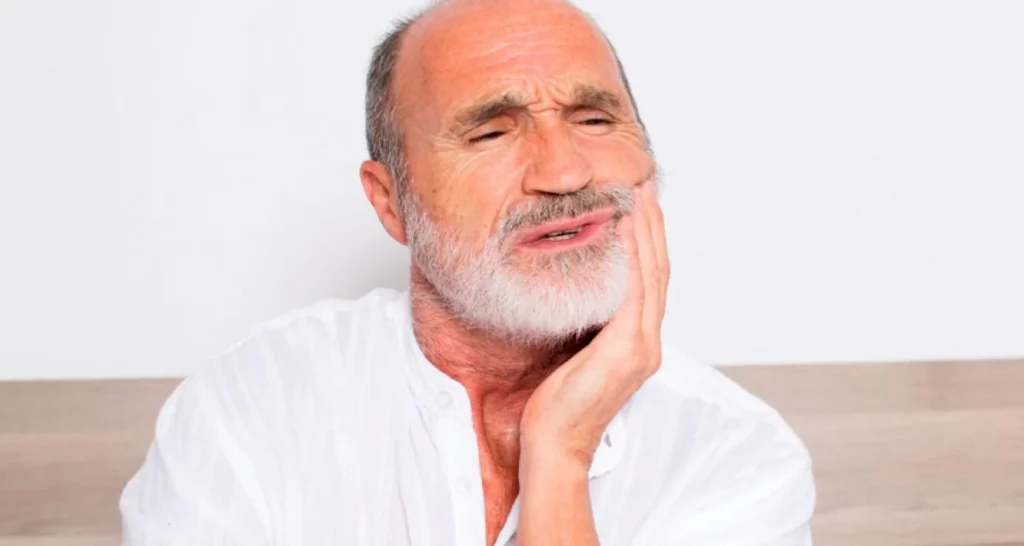

Aging brings with it various changes in dental health, affecting everything from saliva production to tissue resistance. Generally, dental problems in older adults occur due to a lack of timely dental care or poor cleaning, increasing the accumulation of plaque, generating: untreated cavities, gum disease, tooth loss, oral cancer, and complications in people. with chronic diseases. Chronic (long-term) use of some medications can cause dry mouth, increasing the risk of cavities:
● Gum disease: Caused by the accumulation of bacterial plaque, if not removed, it can inflame the gums and affect the underlying bone, causing tooth mobility.
● Dry mouth (xerostomia): Older adults are more likely to suffer from dry mouth, due to age, medication use, or health conditions. Saliva is essential for preventing cavities and keeping gums healthy. The gums may thin and begin to recede. A lack of saliva increases the risk of cavities, problems with taste, chewing and swallowing, mouth sores, fungal infections such as candidiasis, and gum disease. According to the opinion of some experts, this condition can make the lining of the esophagus more susceptible to injury.
● Gum disease: Gingival recession is common in older adults, exposing the base of the tooth and increasing the risk of inflammation and cavities. Strong brushing and periodontal disease are the main causes of this problem. Periodontal disease destroys the gums and tooth support structures, generated by the long-term accumulation of bacteria; despite being rare, it can also cause dental abscesses (bags of pus), which, if not treated in time, may cause other problems. of health.
● Caries: They are produced when bacteria convert sugars and starches into acid that attacks tooth enamel. Gum recession and dry mouth contribute to its development.
● Oral cancer: More common in people over 45 years of age, it is associated with the use of tobacco and alcohol. Other factors include HPV infection, poor dental hygiene, and prolonged rubbing of teeth, dentures, or fillings.
● Edentulism: With age, tooth enamel tends to wear down, making teeth more vulnerable to various diseases. Many older adults lose teeth due to problems in their hard and periodontal tissues, thereby, affecting chewing and nutrient consumption, speech, self-esteem, and aesthetics. Some elderly may lose all their teeth.
● Diminution of the perception of taste (hypogeusia): With age, the number of taste buds decreases, affecting the perception of flavors. Dysgeusia, a taste disorder, can cause unpleasant sensations in the mouth.
These problems highlight the importance of adequate dental care in old age, addressing not only the clinical aspects but also the psychosocial effects associated with dental health. On the other hand, the people most susceptible to dental health conditions are those with poor oral hygiene, smokers, and people with certain disorders, such as diabetes mellitus, poor nutrition, leukemia, or AIDS.
How to Prevent Dental Problems During Aging?
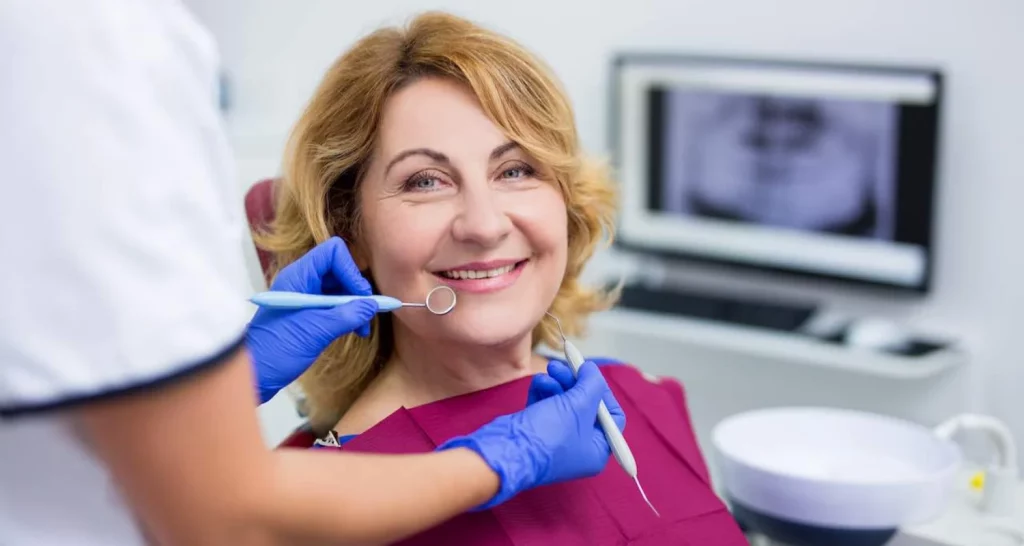

To prevent gum disease and cavities, especially in older adults, it is essential to adopt proper oral hygiene habits and schedule regular visits to the dentist. Here are some key tips:
● Effective brushing: Brush your teeth and dentures, if you have them, at the end of the day and at least once during the day. Use a small-headed toothbrush with soft or medium bristles. Brushing should be done three times a day, especially before sleeping.
● Use of fluoride: Choose a toothpaste with 1350 to 1500 ppm fluoride. Fluoride is essential to prevent cavities and strengthen tooth enamel.
● Interdental cleaning: Use interdental brushes or floss at least once a day to clean between your teeth.
● Healthy diet: Reduce your intake of sugary foods and drinks. Include fruits and vegetables in your diet and consume more water.
● Visits to the dentist: Go to the dentist regularly for check-ups and cleanings, following the frequency he recommends.
● Special brushes: For people with arthritis or limited mobility, electric toothbrushes or adapters for traditional toothbrush handles are recommended.
● Dental prosthesis care: If you use removable prostheses, keep them clean with special brushes, liquid soap, and effervescent tablets. Remember to remove the prosthesis during the night.
● Oral mucous massage: Massaging the oral mucosa during oral hygiene can stimulate blood circulation in areas covered by the prosthesis.
● Avoid tobacco: Stop smoking, as it aggravates gum problems, cavities, and tooth loss.
● Use of gauze: If brushing is difficult, use moistened gauze to clean food debris from teeth and gums.
These practices not only help maintain good dental health, but they also contribute to the quality of life of older adults, allowing them to speak, smile, and socialize properly.
Conclusion
In conclusion, aging entails numerous changes that affect dental health, such as reduced saliva production, increased tooth sensitivity, and gum problems. To prevent oral diseases, it is crucial to maintain good oral hygiene through regular brushing with fluoride paste, interdental cleaning, and reducing sugar consumption. In addition, it is important to consider the use of special brushes for people with reduced mobility and the proper cleaning of dentures. Regular visits to the dentist are essential to detect and treat problems early, thus preserving dental health and, therefore, quality of life in old age.
Frequently Asked Questions
How does aging affect dental health?
With advancing age, older adults face an increased risk of developing cavities in the roots of their teeth. This is mainly due to increased gum recession, which leaves root surfaces exposed, and frequent use of medications that cause dry mouth or xerostomia. It is estimated that around 50% of people over 75 years of age suffer from root cavities that affect at least one tooth.
What effect does aging have on dental health?
The aging process can have several effects on dental health. In older adults, receding gums, a common condition, increase the likelihood of cavities developing in the roots of the teeth. In addition, dry mouth, also a common problem at this stage of life, promotes the accumulation of bacteria in the mouth, thus increasing the risk of cavities. On the other hand, oral cancer occurs more frequently in people over 45 years of age, being more prevalent in men than in women.
Do teeth become brittle with age?
As we age, teeth may become more brittle and susceptible to cracks or chips, allowing bacteria to enter. An early sign of this problem may be pain when biting. For small cracks, the dentist will perform procedures to smooth them. However, larger cracks can become so severe that they lead to tooth loss.
How to prevent teeth from decaying?
To prevent teeth aging, it is essential to brush daily, using fluoride toothpaste and floss to clean between the teeth and control plaque buildup. Consider adding more fluoride to your oral care regimen, either by using a fluoridated mouthwash or by asking your dentist to apply a fluoride gel or varnish, which will help maintain robust tooth enamel.
Share:
References
1. American Dental Association (ADA). (Aug, 2023). Aging and Dental Health. https://www.ada.org/resources/research/science-and-research-institute/oral-health-topics/aging-and-dental-health
2. Sulyanto, Rosalyn. (Sep, 2022). Effects of Aging on the Mouth and Teeth. MSD, Manual. https://www.msdmanuals.com/home/mouth-and-dental-disorders/biology-of-the-mouth-and-teeth/effects-of-aging-on-the-mouth-and-teeth
3. Oral Health Foundation. (n/f). Dental care for older people. https://www.dentalhealth.org/dental-care-for-older-people
4. Raphael C. (2017). Oral Health and Aging. American journal of public health, 107(S1), S44–S45. https://ajph.aphapublications.org/doi/full/10.2105/AJPH.2017.303835
5. Dugdale David C. (Apr, 2022). Aging changes in teeth and gums. MedlinePlus. National Library of Medicine. https://medlineplus.gov/ency/patientinstructions/000951.htm
6. Patel J, Wallace J, et. al., (Aug, 2021). Oral health for healthy ageing. The Lancet, Healthy Longevity Home, Vol 2, Issue 8, pag 521 – 527. DOI: https://doi.org/10.1016/S2666-7568(21)00142-2
7. Division of Oral Health, National Center for Chronic Disease Prevention and Health Promotion. (May 2021). Older Adult Oral Health. https://www.cdc.gov/oralhealth/basics/adult-oral-health/adult_older.htm


